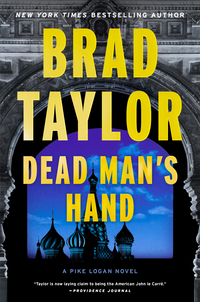Machine Vendetta by Alastair Reynolds
 Wednesday, January 24, 2024 at 6:35AM
Wednesday, January 24, 2024 at 6:35AM 
Published by Orbit on January 16, 2024
Blending the genres of crime story, thriller, and science fiction, Machine Vendetta is the third novel to feature Tom Dreyfus, a prefect employed by the Panoply, enforcers of the Common Articles (something like a federal constitution) that bind the artificial habitats orbiting the planet Yellowstone. Habitats make and enforce their own laws, although nearly every public policy decision is decided by ballot. The Panoply protects an overriding interest in democracy by maintaining polling computers and assuring that habitats don’t interfere with the right of their citizens to vote. In other words, you won’t hear much about stolen elections in the Glitter Band.
The Dreyfus novels are set in Alastair Reynolds’ impressive Revelation Space universe. The criminals that most concern Dreyfus are two rogue Artificial Intelligences, Aurora and the Clockmaker. Aurora was once a human, although she no longer has any regard for people of flesh-and-blood. In an earlier novel, Dreyfus made a secret alliance with Aurora, giving her access to Panoply’s computer systems, so that she could wage a war against the Clockmaker. He has lived with guilt ever since.
Difficult moral choices make for compelling fiction. Dreyfus’ choice comes back to haunt him in Machine Vendetta when it seems that the balance of terror he orchestrated can no longer be maintained. When he confides his secret to another prefect, she faces a moral dilemma when deciding whether to rat him out, as duty requires.
Apart from adversarial AIs, the criminal of immediate concern is a Panoply officer who used the weapons on his ship to destroy part of a habitat, apparently seeking vengeance for the habitat’s historical mistreatment of hyperpigs — genetically altered pigs who have taken humanoid form. Racial bias in Reynolds’ future have been replaced by bias against hyperpigs, Haters gotta hate, they just need to find some justification for hating anyone who seems different. In any event, the habitat fought back and the officer died in the ensuing battle. But was the motivation for that crime something other than it appears to be?
Another Panoply officer, Ingvar Tench, is thought to have committed suicide by entering a habitat that harbors a strong anti-Panoply sentiment without taking appropriate precautions. Ingvar’s daughter Hafdis wants to join Panoply after learning of her mother’s death. Her existence comes as a surprise to Dreyfus and everyone else at Panoply. Perhaps she also is not what she appears to be.
The two strangely behaving officers are linked in a way that Dreyfus must discern to solve his bigger problem. Tench was investigating something important to the ongoing war between Aurora and the Clockmaker. Dreyfus needs to learn what she discovered to prevent one AI from gaining an advantage over the other. The story is filled with self-sacrifice as Panoply officers put duty ahead of safety to protect the Glitter Band and its democratic values.
Reynolds is always creative, but his novels balance clever imaginings of the future with stories that are fundamentally about people. They explore what it means to be a human (even if the human is a pig) and illustrate behaviors and choices that make people better humans. Themes of sacrifice and courage are common to science fiction, but few modern writers incorporate them into storylines as skillfully as Reynolds. Combined with a thoughtful yet action-filled plot, Machine Vendetta brings this series to a fitting end. It is is one of the most enjoyable novels sf fans are likely to encounter this year.
RECOMMENDED



